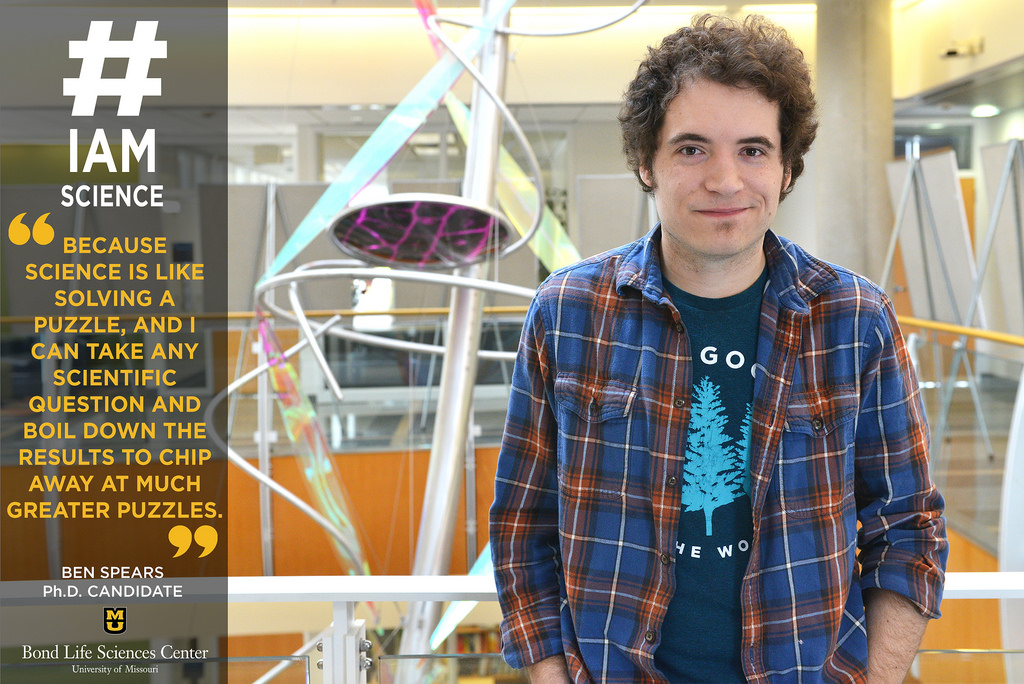Published on

Ben Spears, a Ph.D. candidate, works in the Gassmann Lab in Bond LSC. | photo by Allison Scott, Bond LSC
“#IAmScience because science is like solving a puzzle, and I can take any scientific question and boil the results down to chip away at much greater puzzles.”
By Allison Scott | Bond Life Sciences Center
Like a lot of science majors, Ben Spears had plans to go to medical school after graduating with his bachelor’s degree. That is until he realized the very sight of blood makes his stomach turn.
So, it was back to the drawing board.
Spears took one plant sciences course during his undergraduate career and he knew it was what he wanted to do with his life.
“I took that class and did undergraduate research. Since then, I’ve been entrenched in plant sciences,” Spears said.
Now, as a Ph.D. student in the Gassmann lab in Bond LSC, Spears spends most of his time working on how plants and their interacting microbes interrelate.
“We’re interested in what signals are coming from the plant on a molecular level and the microbe of interest,” Spears said. “We care about how we can make these plants resistant.”
For Spears, that’s specifically looking at one family of transcription factor proteins, which can eventually be applied to other plants and help with immunity.
“I’ve uncovered a new role for the transcription proteins,” Spears said. “If we think about the immune system, it’s multilayered. Previously, we’ve characterized the role for these proteins in one layer of immunity we thought they didn’t have a role in another.”
As with most science, though, Spears soon uncovered more information that allowed him to better understand what was actually happening.
“If we think about the immune system, it’s multilayered,” Spears said. “Previously, we’ve characterized the role for these proteins in one layer of immunity and we though they didn’t have a role in another. In taking a closer look, I’ve found they do have a role in this other layer.”
Part of the challenge is about finding a balance between plant development and immunity to pathogens. Plants divvy up their limited resources between growing and protecting themselves. If they can’t put enough energy into growth, they won’t produce a good crop to feed people, however, if they’re dying from lacking the ability to protect themselves, they aren’t able to make food either.
“If we can manipulate the balance between immunity and yield in something like maize, that’s the holy grail,” Spears said. “We think the proteins I’m working on could have a crucial role in this balance.”
Another part of his work in the lab is mentoring undergraduate students, which has helped him get a better idea of what he wants to do after finishing his Ph.D.
“It’s been a great experience,” Spears said. “There’s more responsibility in the student’s learning experience than being a teaching assistant because it’s more intimate.”
Working closely with students has furthered Spears’ interest in becoming a professor himself.
“Being a mentor has been pretty good experience to prepare me to have students of my own one day,” Spears said.
At the end of the day, Spears hopes to influence students like his first plant sciences professor did.
“If I can teach at a university and point another student in the direction of plant sciences like my professor did with me, I’d love that,” Spears said.